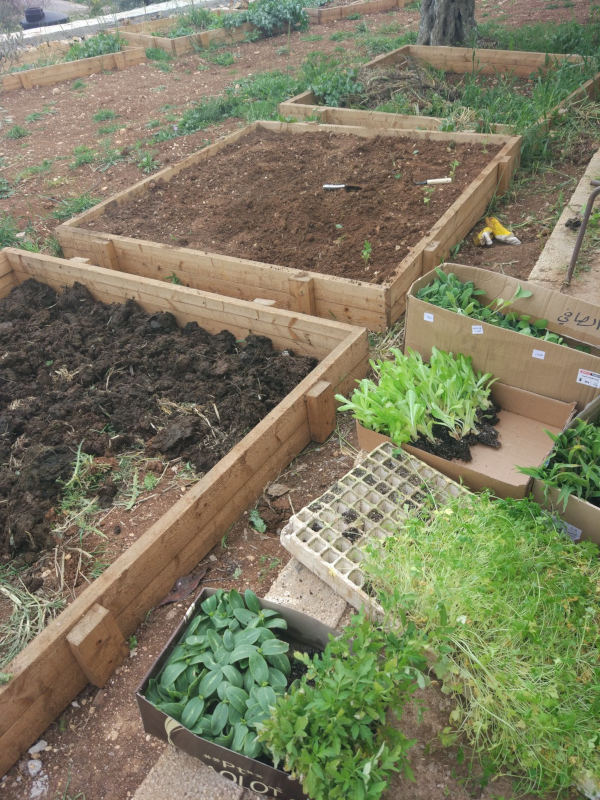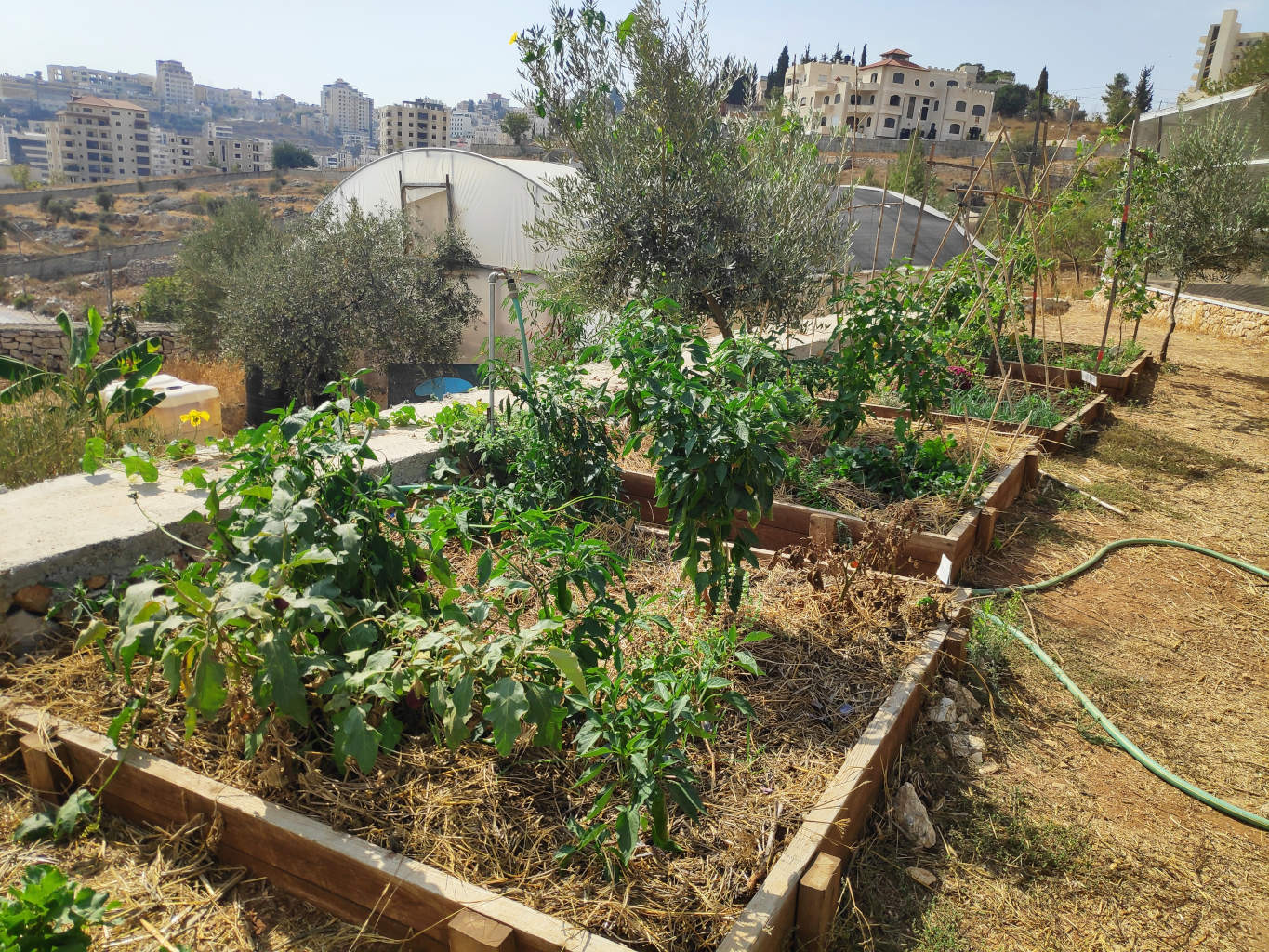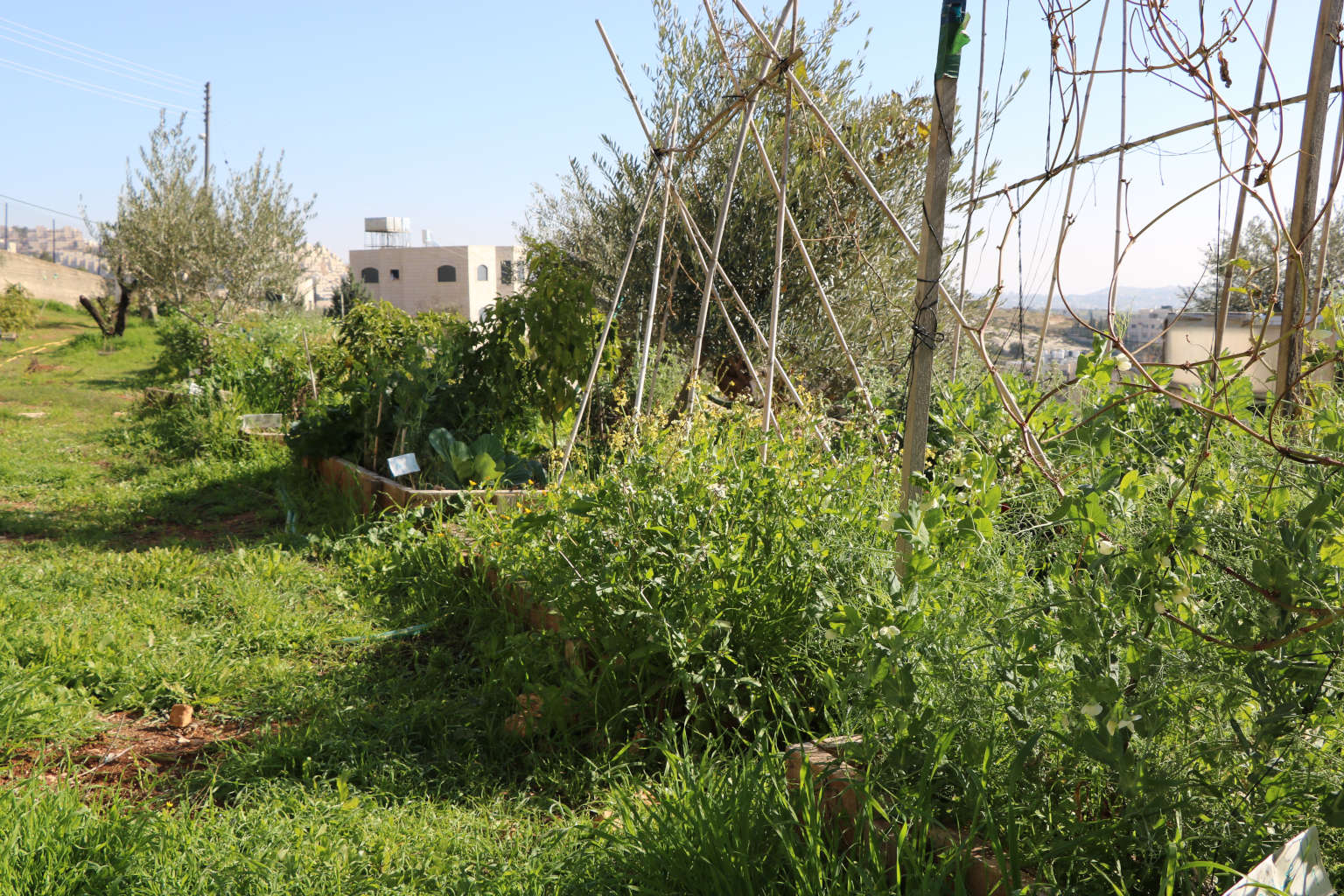Community Garden

Shrinking land and water resources coupled with a fast population growth adds significant pressure on the local people and environment in Palestine. The pressures are great and may only increase in the next few years, and we do know that directing energy to positive ventures helps in moving towards community building. The Bethlehem district suffers from being very much urbanized and its 220,000 residents having few options, as tourism economy is poor and open land is decreasing. Many growing up in urban areas now have little knowledge of their food sources, farming practices, importance of organic agriculture, and environmental issues around economic growth (a green economy). Thus, in brief, the community needs are having sustainable living conditions and learning about ways to improve their lives and livelihood (for example in a health environment). The community garden started with a fund from the Rotary Foundation and received complementary funding from the Western Lieutenancy of the Equestrian Order (USA), from Playground for Palestine, and from the Jerusalem Fund which collectively cover the expenses for (a) Infrastructure for garden including an amphitheater, terracing, soil, wood, etc., (b) Playground and exploration area material, (c) Supplies for gardening (tools, seeds, seedlings, etc.), (d) Program development and activities (trainer, transportation, etc.)

 Some of the food grown at the museum.
Some of the food grown at the museum.
Goals
- Develop a garden and permaculture education center as a model for playful exploration and education on sustainability.
- The educational and empowerment activities focus on children and vulnerable local families (from refugee camps and marginalized villages).
- Helping children and vulnerable local families to develop their own plot of land in the “community garden” and take knowledge to “green” their own backyards, roofs, walls, and communities to create a sustainable local economy.
- Creating a center for researchers and those interested in planting in our Palestinian environment
- Create a responsible interaction between society and the surrounding environment through a set of educational models that aim to create a sustainable environmental awareness, based on preserving natural and environmental resources and linking them to the Palestinian cultural heritage
- Using the acquired knowledge, books, database and samples in order to raise the level of scientific research and develop it in the field of community diversity
- Developing a community garden based on volunteer work by a group of volunteers from different cultures to form an oasis of cultural diversity




